Once upon a time in the land of flawless faces, there lived a makeup enthusiast who had no idea about the right way to clean makeup brushes. Don't let this be your story! In this enchanting guide, we'll reveal the magical secrets behind keeping your makeup brushes pristine and ready for action.
If you're one of the 98% of people who don't know how to properly clean makeup brushes, this blog post is for you! Whether you're a beauty lover or just someone who likes to be clean (no judgment here), it's important to know how to clean your makeup brushes. Not only are dirty makeup brushes gross, but they can also lead to breakouts and other skin problems.
You may be wondering, "What's the short answer to properly clean my brushes?" Well, here it is: gently wash them with mild soap and water, then lay them flat to dry. But don't rush off just yet! There's more to uncover in this mystical journey of brush maintenance.
Stay with us as we delve into the reasons why you should keep your brushes clean, explore the best cleaning techniques, and unveil some enchanting tips to prolong their life. Keep reading to find out the best way to clean your makeup brushes!
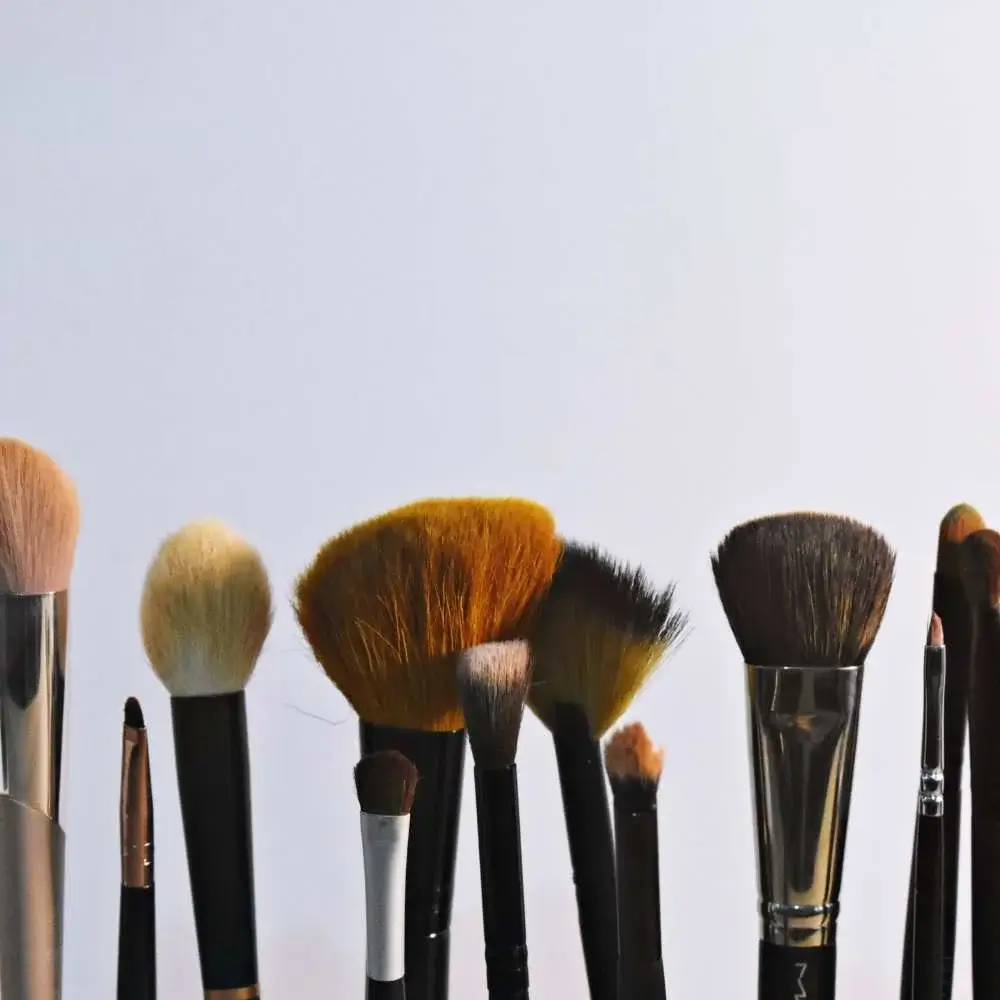
The Ultimate Makeup Brush Cleaning Extravaganza!
First things first, gather your essentials: water, soap, and a brush cleaner. While any soap will work, we're totally smitten with gentle hand soap or baby shampoo. As for brush cleaners, you can either snag one from the store or channel your inner DIY guru and make your own! Simply mix 1 part rubbing alcohol with 2 parts water, and there you have it!
With everything at the ready, let the cleaning party begin! Start by drenching the bristles in warm water. Next, add a touch of soap and whip up some sudsy goodness. Keep at it until every last bit of makeup has vanished. Once your brush is spick and span, rinse it off with warm water. To wrap things up, gently pat away any lingering moisture with a towel and let it air dry. Ta-da! Your makeup brushes are now revitalized and raring to go for their next creative adventure!
How Often Should You Clean Your Makeup Brushes?
Cleaning Frequency
How often should you clean your makeup brushes? It depends on how often you use them! If you use your brushes daily, then you should be cleaning them at least once a week. But if you only use them once in a while (say, for special occasions), then once a month is probably sufficient. No matter how often you use them, though, it's important to give them a good cleaning every now and then!
We hope this blog post has taught you everything you need to know about cleaning makeup brushes! Just remember: water, soap, and brush cleaner are all you need. Oh, and don't forget to give them a good cleaning every once in a while—even if you don't use them that often.
We’ve all been there. You’re in the middle of doing your makeup when you realize that your brushes are looking a little… shall we say, less than fresh. But fear not! There are plenty of great options out there for brush cleansers, and we’ve rounded up the best of the best. Click on the link and check out the prices today. From gentle foaming cleansers to deep-cleansing oils, we’ve got you covered. And if you’re looking for something a little more natural, we’ve got that too. So what are you waiting for? Get clicking and get your brushes clean! Happy cleansing!
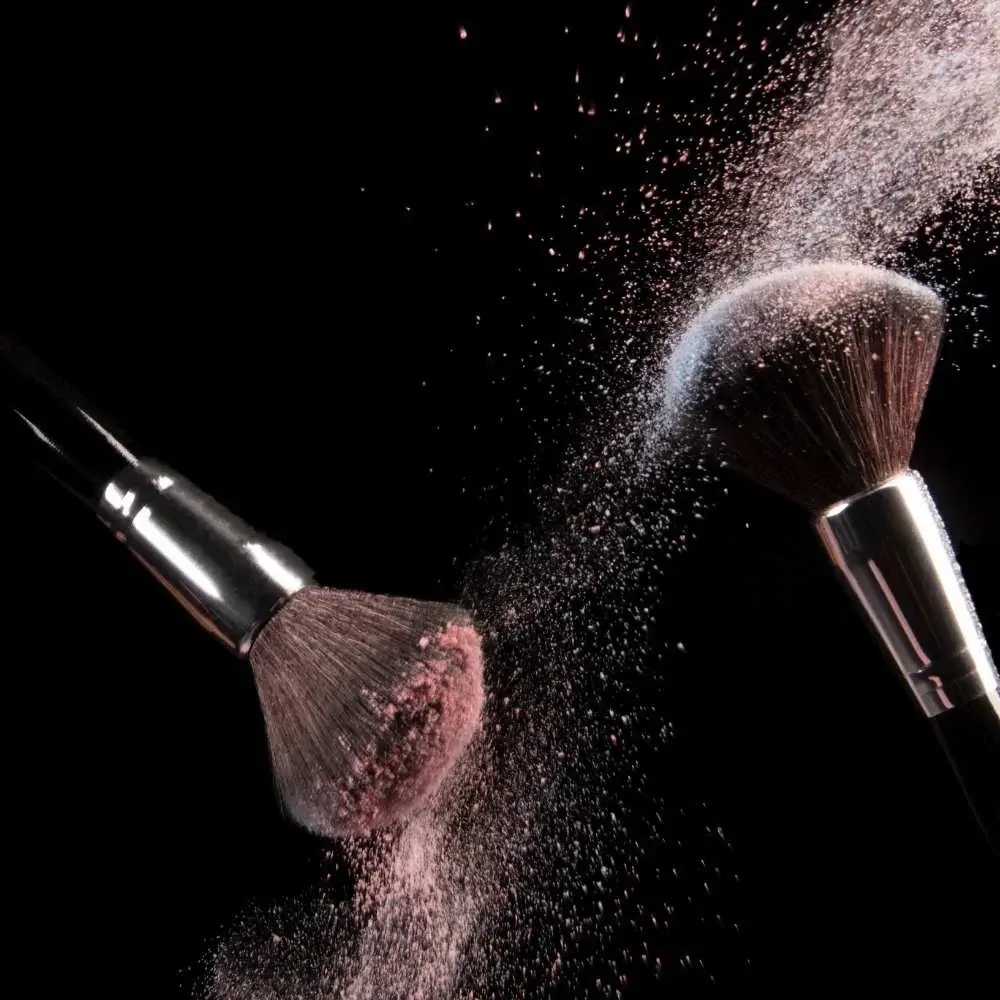
The Importance of Regular Cleaning
Understanding the right way to clean makeup brushes includes knowing how often to clean them. Regular cleaning is essential for maintaining the quality of your brushes and ensuring a flawless makeup application. Moreover, it helps prevent bacteria buildup, which can lead to skin irritation or breakouts.
Daily vs. Weekly Cleaning
The frequency of cleaning your makeup brushes depends on how often you use them and the type of makeup you apply. As a general rule, brushes used for liquid or cream products, such as foundation or concealer, should be cleaned more frequently – ideally after every use or at least every other day. This is because these products tend to accumulate and harbor bacteria more quickly.
On the other hand, brushes used for powder products, such as eyeshadow or blush, can be cleaned less frequently – about once a week. However, if you notice any visible residue or experience skin irritation, consider increasing the cleaning frequency.
Deep Cleaning vs. Spot Cleaning
In addition to the regular weekly cleaning, it's essential to perform a deep cleaning of your makeup brushes at least once a month. Deep cleaning involves using a gentle makeup brush cleaner to thoroughly cleanse and remove all traces of makeup, dirt, and bacteria from the bristles.
Spot cleaning, which can be done with a quick-drying brush cleaner or makeup remover, can be performed daily or as needed to remove excess product between uses. This helps maintain the cleanliness of your brushes without the need for a full wash.
By following the right way to clean makeup brushes and adjusting the cleaning frequency based on your usage and makeup types, you'll ensure the longevity of your brushes and promote healthy, radiant skin. Remember that clean brushes are key to a flawless makeup application, so make it a priority in your beauty routine.
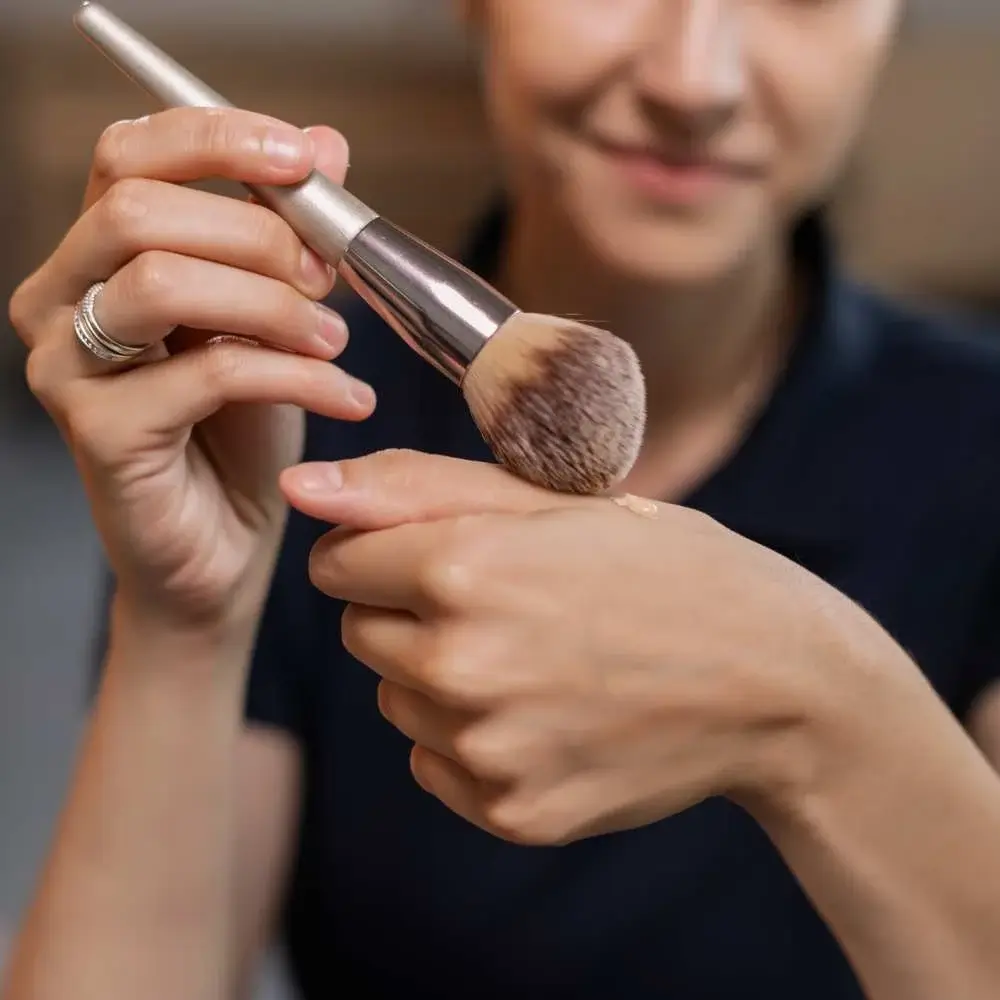
The Right Way to Clean Makeup Brushes: Avoid These Common Mistakes
Mistake #1: Not Cleaning Brushes Often Enough
The first common mistake is not cleaning your makeup brushes frequently enough. Ideally, you should be cleaning your makeup brushes at least once a week, depending on how often you use them. If you don't, bacteria and dirt will accumulate, potentially causing skin irritation or breakouts.
Mistake #2: Using Harsh Cleaners
Another mistake people make is using harsh cleaners on their brushes. It's essential to use a gentle cleaner designed specifically for makeup brushes. This will ensure that the bristles stay soft and in good condition, while also effectively removing makeup residue and bacteria.
Mistake #3: Not Rinsing Brushes Thoroughly
A critical step in the right way to clean makeup brushes is rinsing them thoroughly. Failing to do so can leave soap residue on the bristles, which may irritate your skin or cause your makeup to apply unevenly. Make sure to rinse each brush under lukewarm water until the water runs clear.
Mistake #4: Drying Brushes Incorrectly
How you dry your brushes is just as important as how you clean them. Many people make the mistake of leaving their brushes to dry on a flat surface or standing up with the bristles facing upwards. This can cause water to seep into the ferrule (the part that connects the bristles to the handle), causing damage over time. Instead, dry your brushes by hanging them upside down or laying them on a clean towel with the bristles hanging off the edge to allow airflow.
Mistake #5: Not Replacing Brushes When Needed
Lastly, it's essential to know when to replace your makeup brushes. Brushes that are shedding, have damaged bristles, or have a loose ferrule should be replaced. Using damaged brushes can lead to poor makeup application and potential skin irritation.
By avoiding these common mistakes, you'll be well on your way to mastering the right way to clean makeup brushes. This will not only help maintain the longevity of your brushes but also ensure a flawless makeup application and healthy skin.
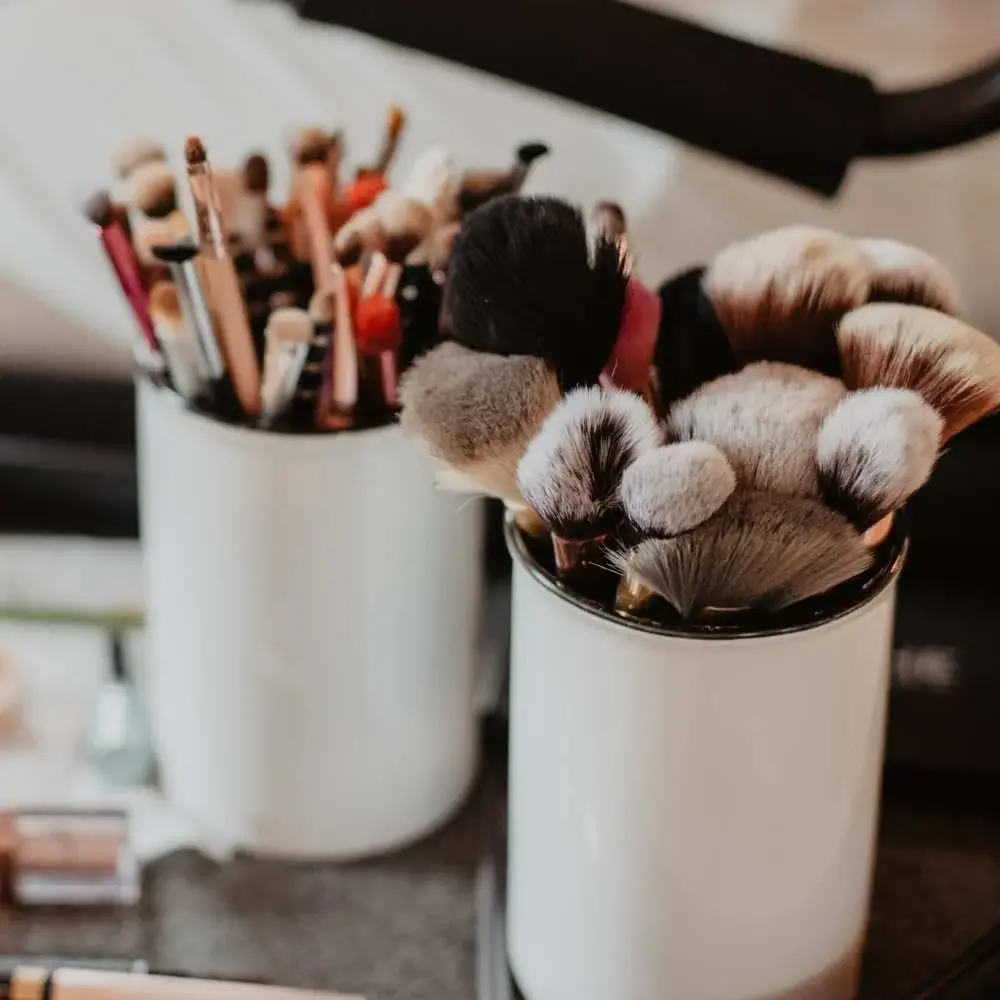
Selecting the Perfect Makeup Brush Cleaner
Choose a Cleaner Designed for Makeup Brushes
The right way to clean makeup brushes starts with selecting a cleaner specifically formulated for this purpose. Avoid using regular soap, as it can be too harsh and damage the bristles. Instead, opt for a gentle makeup brush cleaner that will effectively remove makeup residue and bacteria without harming your brushes.
Consider Liquid vs. Solid Cleaners
Makeup brush cleaners come in various forms, such as liquid and solid. Liquid cleaners are typically more effective at breaking down stubborn makeup, while solid cleaners (also known as brush cleansing bars) are convenient for on-the-go cleaning. Evaluate your needs and preferences before making a decision.
Check the Ingredients
When choosing a makeup brush cleaner, it's essential to pay attention to the ingredients. Look for a cleaner that contains gentle, natural ingredients, such as plant-based oils and extracts. Avoid cleaners with harsh chemicals, sulfates, or synthetic fragrances, as these can damage your brushes and potentially irritate your skin.
Assess the Cleaning Process
Some makeup brush cleaners require you to mix them with water, while others are ready to use straight out of the bottle. Consider your preferences and how much time you're willing to spend on cleaning your brushes when choosing a cleaner. The right way to clean makeup brushes should be both efficient and effective.
Read Reviews and Seek Recommendations
Lastly, don't forget to read reviews and ask for recommendations from friends or online communities. This can help you gain insight into the performance and user experience of different makeup brush cleaners. Remember, the right cleaner for someone else might not be the best choice for you, so always consider your personal needs and preferences.
By following these tips, you'll be able to choose the right makeup brush cleaner that aligns with your needs and preferences. This will ensure that you're using the right way to clean makeup brushes, maintaining their longevity and promoting a flawless makeup application.
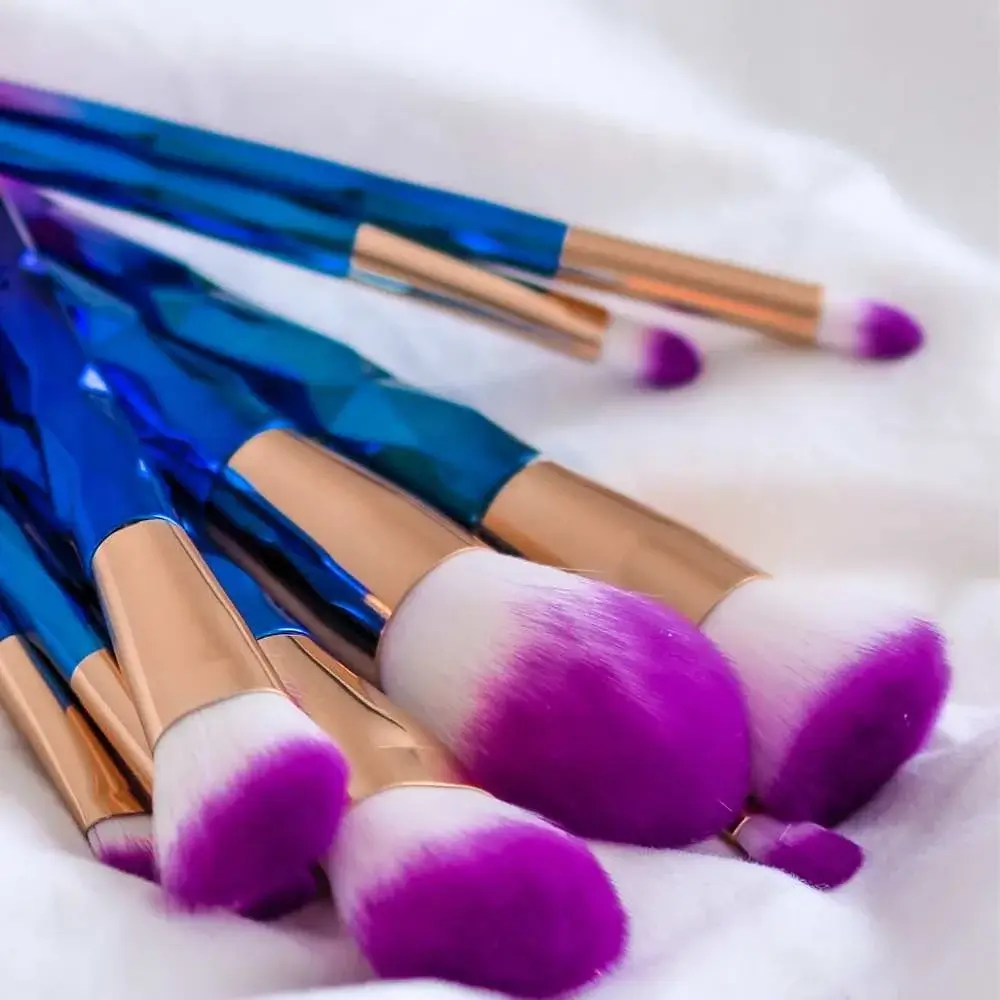
FAQs About the Proper Care and Cleaning of Makeup Brushes
Can I use my makeup brushes immediately after washing?
It's better to wait until your brushes are completely dry before using them again. Using them when they're wet could harm your brushes and may not provide an ideal makeup application.
How do I dry my makeup brushes after cleaning them?
After squeezing out the excess water, reshape the brush bristles and lay the brushes flat to dry. You can also hang them bristle side down to prevent water from soaking into the handles, which can loosen the glue over time.
What is the right way to wash makeup sponges?
Like brushes, sponges should be cleaned with a mild soap or shampoo. Soak the sponge in soapy water, gently squeeze it until the makeup is removed, rinse well, and allow it to air dry.
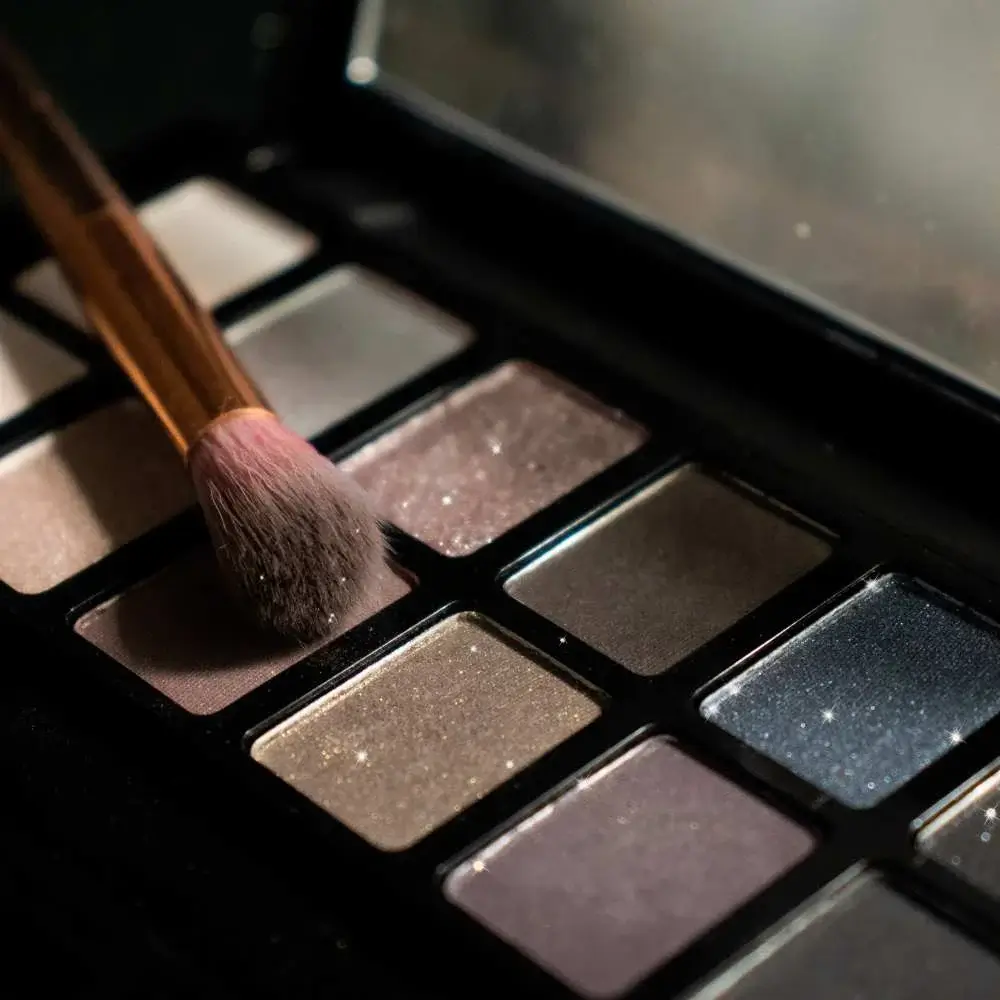
What happens if I don't clean my makeup brushes regularly?
Dirty brushes can lead to skin problems like breakouts and irritation because they can harbor bacteria, dirt, and oil. They can also compromise your makeup application.
Can I use a hair dryer to speed up the drying process of my makeup brushes?
It's not recommended to use a hair dryer as the heat can damage the bristles. Air drying is the best method to ensure your brushes maintain their shape and longevity.
Read our article about best cruelty free lipstick here!
Read our article about best deodorant for kids here!
Read our article about best lip balm for men here!







